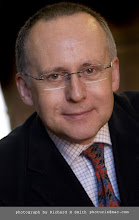Fit the fourth: Oh no they love us after all or, why scientists secretly rather like feeling neglected and miserable
"With Oblomov, lying in bed was neither a necessity…nor an accident…nor a gratification. Rather, it represented his normal condition. "
Ivan Goncharov, 1858, (Trans. CJ Hogarth, 1915)
As I mentioned in my previous fit, a much-awaited report by the Wellcome Trust and the Office of Science & Technology (OST, within the UK government’s Department of Trade and Industry) was finally published in late 2001 after a long gestation period when it seemed to emulate the famous Campbells – always coming, never arriving.
 There is something about “long-awaited” reports that tweaks a journalist’s antennae, because the reasonable question arises as to why the report was delayed. The suspicion is always that somebody couldn’t believe it, or didn’t like it. Perhaps disturbing conclusions were blue-pencilled, or fatally weakened with cavilling caveats; that committees had rendered its conclusions meaningless; that the strong message of the original writer has been subjected to what ad-men call vanillacide, by many hands.
There is something about “long-awaited” reports that tweaks a journalist’s antennae, because the reasonable question arises as to why the report was delayed. The suspicion is always that somebody couldn’t believe it, or didn’t like it. Perhaps disturbing conclusions were blue-pencilled, or fatally weakened with cavilling caveats; that committees had rendered its conclusions meaningless; that the strong message of the original writer has been subjected to what ad-men call vanillacide, by many hands.But whatever the suspicions, when the Wellcome/OST Report finally landed, it was a bombshell. It was the first ever in-depth analysis of public attitudes to science in Britain, and for the first time it allowed us to make deductions about public attitudes that were based on real evidence, rather than the usual assertions based on hearsay or prejudice.
The results surprised and shocked many scientists. It appeared that the British public was not anti-science; scientists were loved and admired for their work; news about their work was a source of amazement; most people (including those who did not care personally) thought science and technology (and even blue-skies research) was important to the country and to the individual and should be paid for out of general taxation. Three quarters believed science offered good career prospects. And university scientists were especially valued for their independence of mind and status.
These revolutionary findings were always destined to take time to sink in, because they ran counter to much (if not most) of the received wisdom among scientists. Yet on the following St Valentine’s Day, at a Parliamentary event organised by a consortium of scientific and engineering bodies in a mass lobby of political parties, it was clear that even in that forum, the OST/Wellcome Report’s findings had made no impression at all. I sat in disbelief as I listened to the short speeches given by senior scientists and Party Spokesmen, waiting in vain for it to be quoted. And if we are to believe it (and I think we are), every single assertion made there by politicians and scientists alike about public and media attitudes to science was false.
However the OST Wellcome report was welcomed joyfully in other quarters. Before it appeared, science PR officers and journalists could only feel that scientists’ suspicions about the way they were perceived were mistaken. Now, at last, there was evidence to back them up.
So, while it was indeed a bombshell, it went with more of a whimper than a bang. There is a particular reason why the report made slow progress among scientists. The fact that they and their work have broad approval ratings that estate agents, solicitors, surveyors (and these days, perhaps even GPs) would give their eyeteeth for was met with incomprehension - and disbelief. The truth is that a lot of scientists secretly rather like being martyrs in their cause, not least because as well as being deliciously isolating, frankly it is a lot easier to feel that way.
 For years now, scientists have slowly developed a bunker mentality. This dates from the end of the 1960s, whose death knell were rung – at least for scientists in universities - by Labour Secretary of State for Education and Science, Shirley Williams. It was on the cusp of the dismal 1970s that she launched her so-called 13 Points at the universities, and wrote a major article for The Times urging a new social contract upon scientists and announcing, in her words, that “for scientists, the party’s over”. What she meant was that blind adulation and blank cheques were a thing of the past. The Government knew that chill economic winds were blowing, and expectations had to be lowered. Scientists henceforward would have to justify what they did to those who paid for it, because they (the public) wouldn’t be taking it on trust any more.
For years now, scientists have slowly developed a bunker mentality. This dates from the end of the 1960s, whose death knell were rung – at least for scientists in universities - by Labour Secretary of State for Education and Science, Shirley Williams. It was on the cusp of the dismal 1970s that she launched her so-called 13 Points at the universities, and wrote a major article for The Times urging a new social contract upon scientists and announcing, in her words, that “for scientists, the party’s over”. What she meant was that blind adulation and blank cheques were a thing of the past. The Government knew that chill economic winds were blowing, and expectations had to be lowered. Scientists henceforward would have to justify what they did to those who paid for it, because they (the public) wouldn’t be taking it on trust any more.The universities appeared to take no notice of the 13 Points beyond a certain haughty sneer of the sort they used to do so well, and scientists felt insulted - but pretended not to notice. Both were actually rather shaken in their complacency, though not enough to do anything.
Science budgets began to decline, but when the gathering economic storm broke, it was worse than expected. The oil shock hit. The miners struck. Inflation took over. The three-day week blacked out homes. Rubbish piled up in Leicester Square. Corpses went unburied. Schools closed. I studied for my O Level Chemistry in my school’s labs at weekends, warming myself on a roaring Bunsen.
Nothing worked; indeed by the end of that low, crushed decade, nothing at all seemed possible. At least scientists had fellows in their sorrow while helplessness, despair and ennui reigned as the prevailing mood. In fact, this was perhaps the last recent decade when scientists have found themselves in tune with the zeitgeist. They had revelled as revered role models in the obedient, hopeful 50s. The often-overlooked utilitarian socialist Puritanism of the 1960s, where anything that was not functional was a bourgeois indulgence and a sin, also suited their natures well. And in the 1970s they could share in despair and impotence. Had they known their Goncharov, they would have recognised in themselves the pure strains of Oblomovism.
Eventually, it was sheer impatience with the prevailing feeling (expressed in language appropriate to the period) that “everything we touch seems to turn to shit” that brought Margaret Thatcher to power in 1979, with a bold simplistic promises to cure the patient with stiff medicine - medicine that might well kill in the process. But by that time nobody much cared one way or the other. It was a time when desperate remedies were called forth, and they didn’t get much more desperate than Mrs Thatcher’s.
 Yet, way after the 1980s boom times were rolling, as late as 1988, I interviewed scientists (at University College London, left) who were still shaking their heads and saying “everything we touch seems to turn to shit”. The effect of this anachronism was as shocking to me then as it recently was to hear a child of the 1960s (now retired and affluent) refer to something called the “Establishment”. I had not heard that word spoken with an upper case ‘E’ since about 1974, and even then, the Afghan coats worn by those who spoke it had developed more than just a touch of moth.
Yet, way after the 1980s boom times were rolling, as late as 1988, I interviewed scientists (at University College London, left) who were still shaking their heads and saying “everything we touch seems to turn to shit”. The effect of this anachronism was as shocking to me then as it recently was to hear a child of the 1960s (now retired and affluent) refer to something called the “Establishment”. I had not heard that word spoken with an upper case ‘E’ since about 1974, and even then, the Afghan coats worn by those who spoke it had developed more than just a touch of moth.But in 1988, academic scientists – unless they had bought sharp suits and Filofaxes and got on the train from Salford to hawk their wares around the City like they were supposed to - thought they were going the way of the miners. And of course, with that attitude, they were - and the good Margaret wasn’t that bothered one way or the other. And neither was anyone else. Self-pity had come to look not only unsightly, which it always did, but – much worse – it had become unfashionable.
Aware that they needed to come out and fight their corner but fearful to participate in a task that frankly bored them, scientists have, since then, used the supposed (and entirely mythical) uninterest and hostility of the public - and various other bogus excuses, such as the myth that all journalists are unsympathetic and sensational - to pardon their own failure to engage with either. Many top-down initiatives were started from the early 1980s, about which I shall have more to say later. But the personal psychic retreat of the individual scientist began even as the sun of their funding’s golden age went down in the west.
Alas for delicious Oblomovism, the OST/Wellcome survey showed there has been no failure in the public’s interest, or the media’s willingness to cover science, or (by and large, despite BSE and the rest) the public’s faith in scientists, or the (quantitative) level of media coverage. The media and scientists’ own press agents have been telling them this for years and encouraging them to stop tearing their clothes and gnashing their teeth in this self-indulgent way. Perhaps, these folk thought, clutching their surveys, there being some real evidence, scientists might believe it. Scientists, after all, are supposed to place great reliance upon data. But it hasn’t happened yet.
Shirl's pearl
To turn round Shirley Williams’s infamous phrase, the party is not over for scientists at all. It never has been, as far as the public were concerned, even during bleak funding crises that soon followed the election of Mrs Thatcher as Prime Minister.
At the time the OST/Wellcome report appeared I wrote: “Scientists have been invited to the party. The public genuinely wants them there, thinks they may even be cool and wants to hang out with them. Now, there really is nothing for it but for scientists to wash and go”.
Unfortunately, the evidence since the appearance of the report is inconclusive at best, and at worst, suggests that those who most needed to read and accept this document ignored it. Partly this is the Oblomov-like laziness I refer to above. Scientists in the main approve of communication because it is in their interests. But they want the coverage on their own terms, and most want someone else to do it for them. They certainly don’t seem to want money diverted from the scarce resources allotted for research, as that would be taking bread they could eat and casting it upon the waters.
If you detect the aroma of a double standard at work, you are right. The only reliable evidence available shows that the British public’s admiration and affection for scientists is not as low as scientists think. However, this result is so at variance with received wisdom that scientists are loath to believe it.
Some very wise scientist whose name I can no longer remember because of that beefburger I ate in 1985, said: “To see a thing, you must believe it to be possible”. The history of science is filled with examples of evidence ignored because scientists simply could not believe it to be possible. Mechanisms really matter, and scientists are generally unwilling to follow the Holmesian thought-process (which says that after the elimination of the possible, the impossible must be true).
There are good reasons for this, and bad. There are many who, for example, believed their senses when they saw the mounting evidence that continents had drifted across the globe, evidence that was much more elegantly explained than by the various lash-up land-bridge theories that were offered in its place. Yet they could not explain how the continents could move and almost none had the courage to say to physicist objectors “The mechanism is your bloody problem”, as one senior British palaeontologist I know did, when (as a young man) he was cornered by sceptical anti-drift Americans.
We have seen how scientists can be as unscientific as anyone else – especially when not discussing science. So it has proved in the case of the OST/Wellcome report. Scientists are very well able to ignore the evidence if it confounds their prejudices – a process not unlike the necessary filtering that all scientists apply to the noisy, confusing evidence that Nature, when quizzed, tends to throw at them by way of an answer.
Although my main thesis is that scientists should be proud of the differences that make them scientists, they are still human. They may have odd personality traits, but they also share the illogic and reasoning defects of ordinary folk – and are doubly willing to embrace them if it means they can sulk effortlessly rather than get off their backsides and do something.
Truth is, though, most still really just want adulation and a quiet life. And who can blame them?
Envoi
Stuck in their Oblomovism, unable to abandon their preconceptions about how badly they are used, scientists conclude that something should be done – though of course, by someone else and free. What they mean is that they need to do some public relations on themselves. What they end up doing, however, is dashing for the last-but-one refuge of the scoundrel – education.


0 Comments:
Post a Comment
<< Home